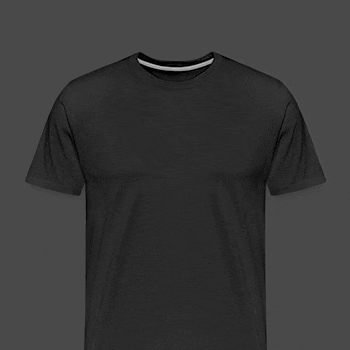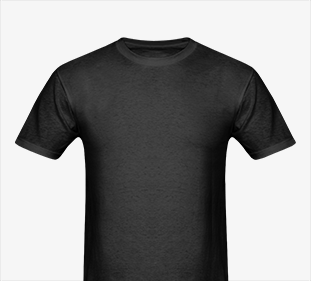In the mid-1980s, the music industry was shaken to its core by a wave of controversy ignited by the explicit lyrics of a song that would forever alter the landscape of artistic expression. That song was “Darling Nikki,” the track from the groundbreaking album Purple Rain by Prince, an American singer, multi-instrumentalist, songwriter, record producer, and actor widely regarded as one of the greatest musicians of his generation.
“Darling Nikki” is the fifth track on Prince’s sixth studio album Purple Rain. This album, released in 1984, turned Prince into a global superstar and is widely regarded as one of the greatest records in history. The song “Darling Nikki” is one of the most beloved and infamous songs from this album. Despite never being released as a single, it gained wide notoriety for its explicit lyrics and played a significant role in the creation of the Parental Advisory sticker. Written as exposition for the movie Purple Rain, “Darling Nikki,” was never a single, but its impact was far-reaching. The song’s vivid narrative of an encounter with a sexually aggressive woman led to the creation of the Parents’ Music Resource Center (PMRC). The PMRC was responsible for the now-commonplace “Parental Advisory-Explicit Lyrics” stickers on LPs and CDs deemed to have objectionable content.

With the support of several members of Congress, including future vice-president Al Gore, the PMRC compiled a list of songs they found most objectionable, known as the “Filthy Fifteen,” with “Darling Nikki” topping the list. Two other Prince-associated acts, Sheena Easton and Vanity, were also included in the list, and Prince is the only composer credited with writing more than one song on the list, having penned Sheena Easton’s “Sugar Walls.”
Prince wrote “Sugar Walls” under the pen name ‘Alexander Nevermind’ after seeing Easton’s performance on The Tonight Show. He recorded the vocal for “Sugar Walls” and sent it to Easton, who then recorded her vocals under Prince’s supervision.
As for the song “Strap on ‘Robbie Baby’,” it was performed by Vanity was a Canadian-born singer, Prince protégé and part-time girlfriend in the early ’80s. Prince wielded significant influence on Vanity’s image and career, having named her ‘Vanity’ and formed a group, ‘Vanity 6’ around her. Although the song “Strap on ‘Robbie Baby’” is not directly attributed to Prince but to Robbie Bruce, who is credited as the writer, Vanity’s hypersexual image, which Prince helped cultivate, can be.
Prince’s song, written for his character The Kid to sing as a boy trying to humiliate his girlfriend who starts working for a rival, contained those explicit references to a girl masturbating, an unveiled dig at her designed to indicate his displeasure in her ‘whoring’ herself out to Morris Day’s character. Any in-character nuance was lost though and the lyrics particularly enraged Tipper Gore, wife of then-Senator Al Gore.
“Darling Nikki” like its namesake, gets right to the action, beginning the first verse with the following lyrics:
I knew a girl named Nikki
Prince – “Darling Nikki”
I guess you could say she was a sex fiend
I met her in a hotel lobby
Masturbating with a magazine
She said, “How’d you like to waste some time?”
And I could not resist when I saw little Nikki grind
That was enough, allegedly, to send Tipper into orbit. Gore claims she bought the album, unwittingly, for her 11-year-old daughter, and was stunned, embarrassed, and outraged by the lyrics. The album had come out in June of ‘84, Tipper says she bought it in December of 1984, and by May of 1985, along with other prominent congressional wives, she had formed the Parents Music Resource Center in direct response.
In its short time, the PMRC lobbied hard and rallied support among PTAs in schools, broadcasters, even some in the recording industry, growing the PMRC’s membership numbers to more than 5 million. By September of 1985 the PMRC and its founders had pressured enough people, including their husbands, that there was a Senate subcommittee hearing, which was a wonderful waste of public resources, and of course became a public spectacle. Witnesses from John Denver to Frank Zappa opposed the PMRC. Tipper Gore explained during the hearings that voluntary labeling was not censorship but rather “truth in packaging,” a time-honored principle in the free enterprise system.
In the end, the PMRC got their way, sort of: in 1990, 19 record companies agreed to put “Parental Guidance: Explicit Lyrics” stickers on albums. However, the outcome was not as they had expected. Heavy metal bands on the list received a sales and publicity boost, and the sort of lyrics that followed in rock, rap, and even country music suggests that the group was fighting a losing battle. They had literally provided the world a list of songs that contained explicit content. At the top of the list, literally, was Prince, chief offender in the Filthy Fifteen.

The introduction of the Parental Advisory label had a significant impact on other artists, and the industry as a whole. While the label was intended to protect young audiences and inform parents, it sometimes imposed constraints on artists, compelling them to self-censor their work or compromise their creative vision to conform to regulatory standards. Artists and record labels often considered these advisories when creating and promoting their work, knowing that explicit content might limit their audience reach or face regulatory scrutiny. However, the label also had an unexpected effect. In many cases, the presence of the Parental Advisory label made the album more desirable, bringing attention and increasing interest in labeled albums due to the so-called “forbidden-fruit effect”.
The notoriety of “Darling Nikki” and the controversy it sparked had a significant impact on the sales of the Purple Rain album. While the song was never released as a single, it gained wide notoriety after Tipper Gore pointed out its hyper-sexual lyrics. The controversy surrounding the song and the album made them a topic of discussion, which likely contributed to their commercial success.
On one hand, the song became infamous for its explicit lyrics, particularly its graphic discussion of sex. This shocked many people at the time, leading to widespread debate and ultimately the formation of the PMRC itself, and the introduction of the Parental Advisory stickers, which became a hallmark of teenage rebellion in the nineties and 2000s.
On the other hand, “Darling Nikki” is one of the most beloved songs from the album. Despite the controversy, or perhaps because of it, the song and the album became a commercial success: Purple Rain has been certified 13× Platinum by the Recording Industry Association of America (RIAA), with total sales standing at 25 million copies worldwide, making it one of the best-selling albums of all time.
Interestingly, the noise near the end of the track, which is actually a choir singing backwards, frightened many fans. When played in reverse, the choir sings a Christian note about Jesus Christ returning at the end of the world, reflecting Prince’s fascination with the apocalypse. An ironic Easter egg for the Christian sensibilities behind the PMRC.
The controversy it sparked highlights the tension between artistic freedom and societal norms, and serves as a reminder of the power of music and the importance of free expression, but also brings into perspective human nature: tell us what we can’t have and that’s what we’ll want.
— Kevin Casini
As “Darling Nikki” sparked controversy it also gained a significant fan base, and that controversy has contributed to the enduring popularity and commercial success of Purple Rain. The controversy it sparked highlights the tension between artistic freedom and societal norms, and serves as a reminder of the power of music and the importance of free expression, but also brings into perspective human nature: tell us what we can’t have and that’s what we’ll want. It’s a notion that persists in art: nearly twenty years after its release, “Darling Nikki” found herself covered by none other than Foo Fighters, as a b-side to the final single release of their fourth studio album.
Despite that controversy, or again perhaps because of it, Prince’s legacy as an uncompromising artist remains intact. The Artist who once reigned at the pinnacle of the “Filthy Fifteen” is today revered as an artist of profound insight and unwavering authenticity. Prince is, in many ways, the Godfather of the Parental Advisory sticker.
It’s evident that the cultural landscape of America has undergone significant transformation: many songs, videos, images, and lyrics that appear on the Filthy Fifteen are now seen as quite tame. Social norms, expectations, accepted themes and language, change. That’s progress. However, one constant remains – the looming specter of governmental attempts to regulate and control ideas deemed controversial. Prince’s influence, his unwavering commitment to that which spoke to him, into the headwinds of mainstream “acceptable” art, continues to resonate, underscoring the enduring power of music and the importance of artistic freedom.
References
- Claude Chastagner Popular Music, Vol. 18, No. 2 (May, 1999), pp. 179-192
- BOOKS:Raising PG Kids in an X-Rated Society, by Tipper Gore, 1987; ISBN 0-687-35282-7
- Prince and the Purple Rain Era Studio Sessions: 1983 and 1984, by Duane Tudahl; ISBN-10: 1538114623
- Prince and Purple Rain: 40 Years, by Andrew Swensson, 2024; ISBN: 9780760386491
- Biographic Prince, by Liz Flavell, 2020 ISBN: 9781781454077





